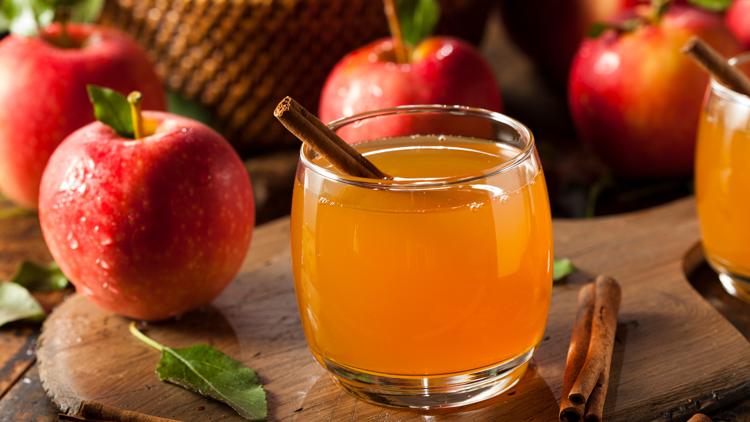There's a simple way to keep yourself safe from unpasteurized cider, while still enjoying a delicious fall beverage.


WASHINGTON — It's finally fall, which means pumpkin spice, falling leaves and apple cider. But a number of health departments are warning about a hidden danger that could be associated with some apple cider.
Unpasteurized apple cider can cause "serious illness or even death" because of bacterial contamination, according to the U.S. Food and Drug Administration.
While most apple cider sold at grocery stores across the U.S. is pasteurized, or treated with heat, to kill harmful bacteria, apple orchards aren't required to do so, according to the Ogle County Health Department in Illinois.
"Apple cider ... is typically a bit murky and golden- colored because its unfiltered and unpasteurized," Ogle County's warning, posted to Facebook, reads. "Most apple orchards don’t take the time to pasteurize because it is not required."
The Fulton County (IL.) health department shared a similar warning on Facebook: "Apple cider is a seasonal favorite, but when left unpasteurized, it can pose a risk of foodborne illness."
Non-pasteurized drinks such as apple cider should be kept refrigerated to avoid bacterial growth.
How to tell if my apple cider is unpasteurized
The FDA requires all untreated products to have a warning label on them. To see whether your apple cider is unpasteurized, check for the following warning on the label:
WARNING: This product has not been pasteurized and therefore may contain harmful bacteria that can cause serious illness in children, the elderly, and persons with weakened immune systems.
The FDA does not, however, require those warnings on juices or ciders sold by the glass. Apple cider sold for drinking directly at orchards, farmers' markets, roadside stands and juice bars, for example, don't require the warning.
Anybody with a weakened immune system should consider possible bacterial contamination when drinking apple cider sold by the glass.
Why is unpasteurized apple cider dangerous?
Unpasteurized apple cider, like other unpasteurized juices, can contain contamination from bacteria that can cause salmonella, E. coli and ither bacterial infections, as well as cryptosporidium parasites, according to safety information from the Canadian government.
Apples are usually contaminated with these bacteria and parasites when they fall off trees and come into contact with animal feces on the ground of the orchard. If the contaminated apples are pressed together with clean, hand-picked apples, the bacteria will transfer to the cider or juice.
Can I treat the apple cider myself?
If you do have unpasteurized apple cider, you can still drink it. You'll just have to do some work yourself first.
You can protect yourself simply by boiling the apple cider on the stove before drinking it. Boiling apple cider does the same job as pasteurization, using heat to kill off the bacteria. Once boiled, the cider can be kept in the fridge for 7-10 days.
.png)









 English (US) ·
English (US) ·